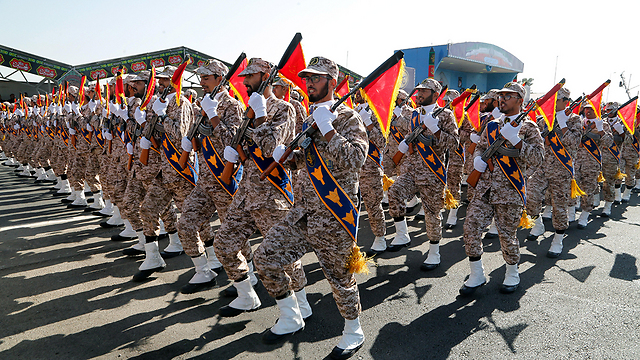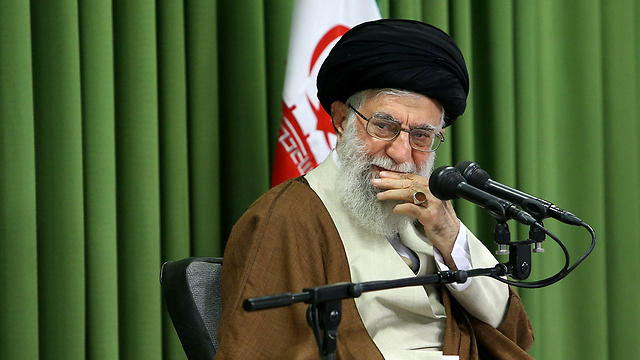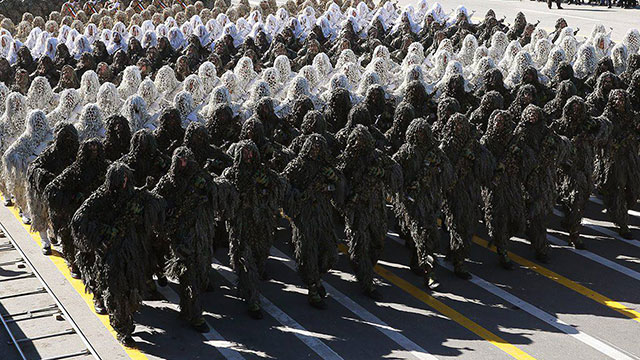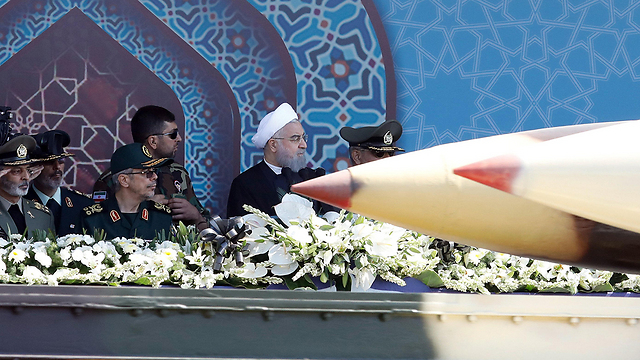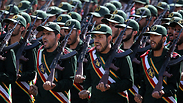
Iranian drama: Khamenei taking on Revolutionary Guards?
Analysis: The supreme leader’s alleged agreement to loosen the strong organization’s economic involvement and to privatize its assets and businesses points to a possible deep change in the Iranian leadership’s most senior ranks; the middle class, which clearly supports President Rouhani and his moderate orthodoxy, stands to gain the most from such a move.
This statement, worded in dry bureaucratic language, contains a major drama. This drama is only in its initial stages, and the real tests for its implementation are difficult and still far away, but this statement in itself points to a possible deep change in the Iranian leadership’s most senior ranks.
The Islamic Republic of Iran believes in duplications. Each important institution or role has two versions, two people or two bodies performing it. There is a “supreme leader” and there is a “president”; there is the house of parliament—elected in the polls—and there is a higher house, which is actually in charge. The duplications are an expression of a world view that sees the best solution for political problems as one based on mediation.
When two sides clash, which is what happens by definition in cases of duplication, a third side will come along and mediate a solution based on a compromise. Such a solution will always be better than a zero-sum game, in which one side stands to gain everything and the other side stands to lose everything.
This approach stems from the logic of a religious community, the logic which guided the Islamic Republic’s founders. In such a community, there are always radicals and moderates, and the relations between them can’t end with an absolute victory of one side over the other. Mediation is the most important tool in an Orthodox communal society, which can only tolerate a change that is organic, slow and ongoing.
From a national body to a self-serving body
The Iranian Revolutionary Guards, which were established shortly after the Islamic Republic in 1980, were supposed to be part of this balance. The professional Iranian army was supposed to represent the “pure” interests of routine security. The Revolutionary Guards, meanwhile, were in charge of keeping the revolution—and the revolutionary leadership—alive. The Revolutionary Guards’ senior command is appointed by and directly connected to senior politicians in Iran.
Reality was different. After a decade of struggles, the Islamic Republic of Iran turned to entrenchment and expansion. Once the need to win an existential war no longer united the different voices, tensions were created between those who sought to continue the battle and resistance and those who wanted to lower the fortified walls.
The Revolutionary Guards, a body which was created to defend the “Islamic revolution,” found it easy to identify with the conservative and reclusive side. The Revolutionary Guards took a stand in the dispute. They were no longer a national body, but a self-serving body.
The Revolutionary Guards’ side, the conservative side, gained huge operational power. One of the things the conservatives took over were the country’s financial activity centers.
The Iranian economy is complicated and complex. It lacks transparency and is largely made up of partly private funds controlled by senior religious clerics and their associates. The Revolutionary Guards joined the party through their conservative patrons and quickly became the country’s strongest financial organization. They run the country’s largest construction and infrastructure companies and are involved in a wide variety of governmental corporations, factories and foundations. In addition, the Revolutionary Guards operate large parts of Iran’s “black” economy—from smuggling to inflated contracts for the execution of public work.
Rouhani’s war on the Revolutionary Guards
The Revolutionary Guards’ strength served as an ongoing indication that the religious logic guiding the Islamic Republic’s founders was growing weaker. The corruption and aggression bothered many citizens, who wished to change the Iranian regime from the inside without bringing it down. Iranian President Hassan Rouhani was elected in 2013 on the platform of a determined internal struggle for improvement and moderation.
The economic reforms proposed by Rouhani were aimed at restoring transparency and supervision to the Iranian economy and eliminating the black economy that was promoted and symbolized by the Revolutionary Guards. Rouhani has been fighting the Guards’ financial power with all his might, but up until now the supreme leader avoided speaking publicly in favor of reducing the Guards’ power. The defense minister’s comment on a privatization of the Guards’ assets and businesses reflects a possible deep and significant change.
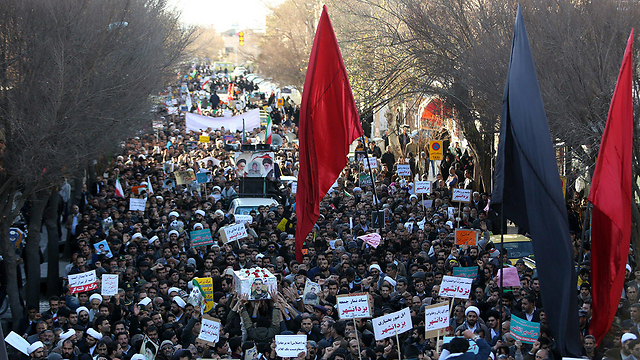
Such a privatization will provide the Iranian middle class with financial power and political influence, giving it the option to purchase businesses and assets. The middle class clearly supports President Rouhani and his moderate orthodoxy.
The protests that rocked Iran in recent weeks were against the corruption of the “regime,” but were mainly directed at the Revolutionary Guards and the religious clerics who support them. The leader’s willingness to consider changing the current situation and reducing the Guards’ power indicates he is beginning to understand that the internal battle in Iran has been decided. The Islamic Republic will have no right to exist if it ignores the middle class’ desires and aspirations, and especially the desire for welfare, development and a focus on internally improving the situation in Iran.
Dr. Ori Goldberg, an expert on political theology in the Shiite world, teaches at the Interdisciplinary Center Herzliya and serves as a research fellow at the Forum for Regional Thinking.










